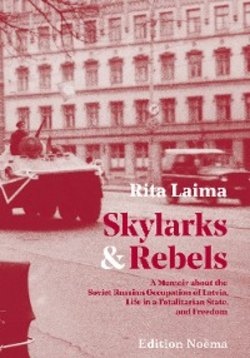Читать книгу Skylarks and Rebels - Rita Laima - Страница 15
Glossary
ОглавлениеBlats—A word from the Soviet era in Latvia that describes the system of connections, favors, and “who you know” in a centralized, impoverished economy, in which stores carried few attractive goods, and good services were hard to come by. For instance, if someone said, “I have blats at the butcher shop on Blaumaņa iela,” it meant “I know someone at the butcher shop on Blaumaņa iela who can get me some quality meat’” (unavailable to walk-in customers). My father-in-law had this kind of blats at a butcher shop. He took portraits of the manager’s family events and was reciprocated with good cuts of meat, which he shared with us. The decades-long system of blats promoted favoritism and spawned nepotism and corruption, problems that Latvia and all post-Soviet societies struggle with today. It also taught a part of society to calculate their relationships.
Cheka / chekist—The Soviet secret police, better known as the KGB. A chekist is a KGB operative.
Eastern Europe—I use the term Eastern Europe to describe the countries that found themselves behind the so-called Iron Curtain and under Soviet communist influence after World War II.
The Free World—A term used during the Cold War to describe countries with democratic political systems, freedom of speech, and free market economies, namely the United States, Canada, and Western Europe (as opposed to the Soviet Union and Eastern Europe).
Iela—The Latvian word for street
The Iron Curtain—“The political, military, and ideological barrier erected by the Soviet Union after World War II to seal off itself and its dependent eastern and central European allies from open contact with the West and other noncommunist areas. The term Iron Curtain had been in occasional and varied use as a metaphor since the 19th century, but it came to prominence only after it was used by the former British prime minister Winston Churchill in a speech at Fulton, Missouri, US, on March 5, 1946, when he said of the communist states, ‘From Stettin in the Baltic to Trieste in the Adriatic, an iron curtain has descended across the Continent.’” (Encyclopedia Brittanica)
Laima—The Latvian goddess of fate and fortune. Ej, Laimiņa, tu pa priekšu, / Es tavās pēdiņās, / Nelaid mani to celiņu, / Kur aizgāja ļauna diena. (An old Latvian daina, which translates as: “Walk, Laima, ahead of me, / I’ll walk in your footsteps, / Don’t let me go down the path / Of the bad day.”
Trimda—The Latvian word for exile. The word trimda stands for all the Latvians who left Latvia as political emigrants during World War II and then convened abroad to establish a temporary alternative Latvian society. The aim of the exile community was to preserve Latvian identity abroad while engaging in political activism to speed up the collapse of the Soviet Union. Trimda Latvians founded congregations, bought or built churches, established schools and camps for their children, published books, read their own Latvian language newspapers, organized concerts, theater performances, art exhibits, and other social activities, striving to preserve the memory of Latvia and the Latvian language and culture. The Soviet Latvian authorities mistrusted trimda Latvians and initiated smear campaigns against some of its leaders.
